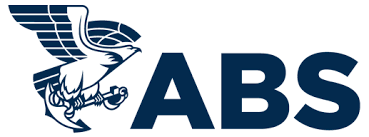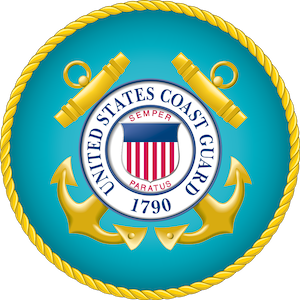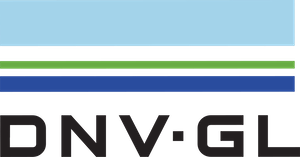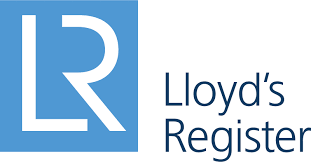What are Classification Societies?
Upstream operations in the oil and gas industries require an extensive global capacity to identify and extract crucial energy resources wherever they may be found. Downstream enterprises benefit from locating close to the point of sale. In either case, operating in the global energy theater brings with it a host of mandatory compliance requirements, classifications, and rules for offshore assets in various and frequently overlapping maritime jurisdictions around the world. These come from the classification societies which have been an essential part of the maritime industry for centuries.
Ninety percent of ocean-going merchant tonnage is classified by the 12 members of the IACS, the International Association of Classification Societies, founded in 1968 to foster higher maritime safety standards and prevent pollution of the world's oceans. Members create rules and regulations which are the foundation for licensing of fleet operations, as well as establishing the requirements for mandatory compliance in each class of vessel or offshore facility.
IACS members carry out annual surveys to ensure continuing compliance verification and play an active role in the IMO, the International Maritime Organization. The 12 members combined provide an extensive international reach to eliminate substandard ships and provide technical support to IMO member nations, improving ship and offshore unit designs as well as enhancing safety and operations.
Armoda serves the oil and gas industries in the Western Hemisphere by providing, servicing, and maintaining offshore modular buildings, technical buildings, and accommodation modules. All modular units must meet the rigorous specifications of the classification societies applicable to the offshore Oil and Gas sector including:
ABS - American Bureau of Shipping
 The American Bureau of Shipping (ABS) has been a maritime leader for more than 150 years and was the first classification society to enter the offshore energy sector. ABS certified the world's first offshore drilling unit in 1958. Today, ABS maintains over 200 rule sets ranging from Rules For Building and Classing Marine Vessels to industry-specific guides for offshore operations including:
The American Bureau of Shipping (ABS) has been a maritime leader for more than 150 years and was the first classification society to enter the offshore energy sector. ABS certified the world's first offshore drilling unit in 1958. Today, ABS maintains over 200 rule sets ranging from Rules For Building and Classing Marine Vessels to industry-specific guides for offshore operations including:
- Rules for Building and Classing Mobile Offshore Units
- Rules for Building and Classing Mobile Offshore Drilling Units
- Guide for Mobile Offshore Units
ABS rules for accommodation and living spaces cover everything from bulkhead ratings to general equipment layout, welding requirements, piping, insulation materials, and fire resistance. The ABS Guide for Portable Accommodation Modules (often referred to as PAM’s) was issued to consolidate requirements for portable modules that are installed on various vessels, rigs, and offshore installations.
USCG- The United States Coast Guard and IMO MODU Code Requirements
 The United States Coast Guard has responsibility for enforcing Title 46 of the United States Code of Federal Regulations (CFR) regarding the construction of Mobile Offshore Drilling Units (MODU). While the IMO MODU Code and ABS rules combine to satisfy the majority of CFR requirements the USCG has additional "supplemental" requirements which are mandatory under US federal law.
The United States Coast Guard has responsibility for enforcing Title 46 of the United States Code of Federal Regulations (CFR) regarding the construction of Mobile Offshore Drilling Units (MODU). While the IMO MODU Code and ABS rules combine to satisfy the majority of CFR requirements the USCG has additional "supplemental" requirements which are mandatory under US federal law.
The USCG works hand in hand with the ABS and other Authorized Classification Societies under the auspices of the Alternate Compliance Program (ACP). This voluntary inspection program provides "a streamlined process for [U.S flagged vessel] owners to gain regulatory compliance while maximizing their vessels' operating time." CG-ENG Policy Letter No. 01-16 provides guidance on Coast Guard standards for design, plan review, installation, inspection, and documentation of Portable Accommodation Modules (PAM) built for and/or installed on inspected vessels and facilities.
Den Norske Veritas (DNV GL)
The Norwegian classification society Stiftelsen Det Norske Veritas dates back to 1864 when it was founded to establish rules for  assessing the risks of insuring individual vessels in Norway's rapidly growing shipping industry. When commercial oil was discovered in the North Sea, DNV (now DNV GL) was perfectly positioned to take on building supervision and inspections and offshore floating rigs and supply vessels became a major sector for DNV in traditional ship classification.
assessing the risks of insuring individual vessels in Norway's rapidly growing shipping industry. When commercial oil was discovered in the North Sea, DNV (now DNV GL) was perfectly positioned to take on building supervision and inspections and offshore floating rigs and supply vessels became a major sector for DNV in traditional ship classification.
Offshore facilities face a barrage of weather and climate challenges requiring that products and materials used in their construction have the robust strength and endurance to withstand the continuous assault of the elements at sea. DNV certification confirms that a unit is able to withstand:
- a broad range of temperatures
- high humidity
- extreme vibrations
- shock and EMC noise
- corrosion and pressure
DNV has been authorized to issue a long list of IMO certifications including cargo ship safety construction, passenger ship safety, and compliance for carrying dangerous goods and chemicals. The USCG has approved supplements in addition to current DNV rules for MODU participants in the Alternative Compliance Program.
Lloyd's Register
 Lloyd's Register provides "compliance, performance and assurance services for a wide range of offshore assets – fixed, floating, semi-submersible and subsea, as well as associated land-based facilities". Lloyd's also started out way back in 1760 as a marine classification society. Today Lloyd's operates in more than 75 countries worldwide with accreditation to certify products and services to meet over 700 standards, rules, codes, and directives.
Lloyd's Register provides "compliance, performance and assurance services for a wide range of offshore assets – fixed, floating, semi-submersible and subsea, as well as associated land-based facilities". Lloyd's also started out way back in 1760 as a marine classification society. Today Lloyd's operates in more than 75 countries worldwide with accreditation to certify products and services to meet over 700 standards, rules, codes, and directives.
Lloyd's approach is to use compliance as a driver to reduce the risks and costs of marine and offshore operations over the long term while minimizing risks to life, property, and the environment. Classification with Lloyd's ensures timely identification of potential problems and keeps you up to speed on the condition of your offshore asset throughout its service life. Direct application of Lloyd's industry-leading classification rules allows owners to manage risk with confidence.
Offshore Facility Support at Armoda
Staying on top of the complex compliance and certification requirements we described from the various classification societies above is a burden you won't need to carry alone when you rely on the engineering expertise at Armoda. We meet them all as part of our rigorous quality assurance philosophy. Our multi-disciplined engineering teams provide the full range of engineering talent required for structural, architectural, mechanical, electrical and instrumentation, and HVAC.
Our fleet of portable accommodation modules and industrial modules are also built and certified to encompass ABS, USCG, and DNV requirements in order to ensure compatibility with each offshore installation. This allows us to have a diverse and flexible fleet that can be utilized globally.
Armoda is the leading provider of the highest quality modular buildings for the offshore and onshore oil and gas industries. Manufactured to the latest industry standards, our turnkey accommodation and office and workshop modules are approved for worldwide use and backed by 24/7, 365 days a year service to the oil and gas industry. Don't hesitate to contact us.
